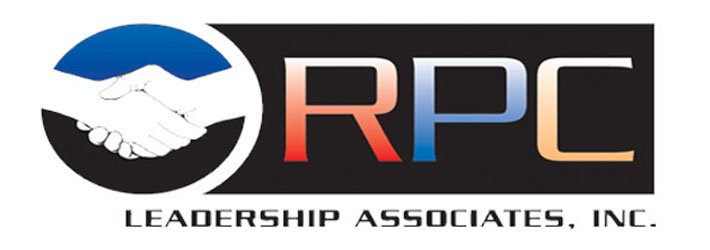…Aye There’s The Point.
These famous and very recognizable words are from William Shakespeare’s Hamlet, Act III, Scene I. I chose them to introduce this month’s topic and did so in what many consider the original, or in our case, authentic form. Authenticity in a crucial element in what I call Real Leadership defined as setting goals and achieving desired results. I also like the way Bill George, former CEO at Medtronic, stated in a Fall 2006 article for U.S. News & World Report titled Truly Authentic Leadership when he stated “The only valid test of a leader is his or her ability to bring people together to achieve sustainable results over time. There is no such thing as the “One-Minute Leader” because real leadership requires years of development and hard work.”
So what makes a person an authentic leader? We all know everyone has the ability to lead and we know we all carry some value set we’ve learned from early childhood. It is the influence from both areas that create the dimensions of authentic leadership listed below:
➢ I recently had the privilege of meeting Tim Sanders, author of Love is the Killer App. During his presentation he reinforced the notion of knowing and following our Purpose with passion. Without Purpose we tend to lose our way as leaders, especially in the face of change and uncertainty. Authentic leaders lead with Purpose.
➢ Authentic leaders live their Values. Many have heard me say “What we believe-we think. What we think-we do”. When we have congruence between our Values (what we believe), our Attitudes (what we think) and our Behaviors (what we do) we lead with authenticity.
➢ One of the individual assessments used in our coaching practice helps clients understand the relationship between how they think with their head and their heart. Authentic leaders lead with both.
➢ We live in a networked world. In large organizations, the informal network may hold as much sway in the overall success of the organization as the formal organization identified on the organization chart. Individually we use technology to help us create and maintain our ever-growing social networks. Authentic leaders effectively leverage their personal power to create and maintain connected relationships.
➢ Self-awareness is an authentic leader’s greatest tool. It only stands to reason then that self-discipline is a key characteristic of an authentic leader to help them stay the course and on purpose when change and uncertainty look to derail them.
As we approach the holidays, many if not all will take the time to reflect on the past, enjoy the present and plan for the immediate future. In doing so you may ask yourself if you are living your purpose and your values to help others in your networks succeed. After all, authentic leadership of ourselves and/or others is what we should want to be or not to be – isn’t that truly the question?
Lead Well.
Rick Lochner
Friday, December 18, 2009
Tuesday, December 1, 2009
The best preparation for tomorrow…
…is to do today’s work superbly well.
These words of wisdom from Sir William Osler are timely on two levels. First, many of you are personally and/or professionally preparing for tomorrow – planning your goals for 2010. Secondly, doing today’s work superbly well speaks to, among other things, making every interaction with your customers a Moment of Truth. During this current reset economy, moments of truth are significant to every business owner, corporate leadership team and non-profit organization that recognize the importance of loyal customers and donors.
So what is a loyal customer? Over the years in many customer-facing positions in business services and non-profit organizations, I see these traits as indicative of loyal customers compared to the satisfied customers we traditionally strive for.
• A loyal customer will proactively tell others about your service to others. A satisfied customer will tell others if you ask – maybe.
• A loyal customer will buy from you over and over again because you make it a no-brainer to do so. A satisfied customer will buy again – if it is convenient.
• A loyal customer is loyal because you continuously and routinely exceed their expectations. A satisfied customer has their expectations met - sometimes.
• A loyal customer is looking for, and gets, solutions to their business issues. A satisfied customer buys your products.
I recently came across an example of how inattention to moments of truth can negatively impact customer loyalty. Incidentally, I heard this story from multiple sources at unrelated events amplifying the impact, as I am sure I was not the only one who this story was relayed to. As a result of an acquisition, a computer retailer with local brick and mortar presence continues to advertise their services via the web. The consumer electronics company that purchased them markets the same products in the physical location at different prices and refuses to acknowledge the differences as well as fails to provide long time customers a reasonable and consistent solution, only excuses.
Because loyal customers typically represent less than 20% of your total customer base, on average, the remaining customers represent an opportunity for both you and your competitors. The opportunity is yours when you create and align your moments of truth to create a consistent value-based experience for your customers. However, the advantage goes to your competitors when you fail to provide consistent value and create a void in customer expectations. In the story above, leaders of the parent company created an environment where customers are now thinking about alternatives.
As you prepare for 2010, whom are you giving the advantage to?
Lead Well.
Rick Lochner
These words of wisdom from Sir William Osler are timely on two levels. First, many of you are personally and/or professionally preparing for tomorrow – planning your goals for 2010. Secondly, doing today’s work superbly well speaks to, among other things, making every interaction with your customers a Moment of Truth. During this current reset economy, moments of truth are significant to every business owner, corporate leadership team and non-profit organization that recognize the importance of loyal customers and donors.
So what is a loyal customer? Over the years in many customer-facing positions in business services and non-profit organizations, I see these traits as indicative of loyal customers compared to the satisfied customers we traditionally strive for.
• A loyal customer will proactively tell others about your service to others. A satisfied customer will tell others if you ask – maybe.
• A loyal customer will buy from you over and over again because you make it a no-brainer to do so. A satisfied customer will buy again – if it is convenient.
• A loyal customer is loyal because you continuously and routinely exceed their expectations. A satisfied customer has their expectations met - sometimes.
• A loyal customer is looking for, and gets, solutions to their business issues. A satisfied customer buys your products.
I recently came across an example of how inattention to moments of truth can negatively impact customer loyalty. Incidentally, I heard this story from multiple sources at unrelated events amplifying the impact, as I am sure I was not the only one who this story was relayed to. As a result of an acquisition, a computer retailer with local brick and mortar presence continues to advertise their services via the web. The consumer electronics company that purchased them markets the same products in the physical location at different prices and refuses to acknowledge the differences as well as fails to provide long time customers a reasonable and consistent solution, only excuses.
Because loyal customers typically represent less than 20% of your total customer base, on average, the remaining customers represent an opportunity for both you and your competitors. The opportunity is yours when you create and align your moments of truth to create a consistent value-based experience for your customers. However, the advantage goes to your competitors when you fail to provide consistent value and create a void in customer expectations. In the story above, leaders of the parent company created an environment where customers are now thinking about alternatives.
As you prepare for 2010, whom are you giving the advantage to?
Lead Well.
Rick Lochner
Subscribe to:
Posts (Atom)

